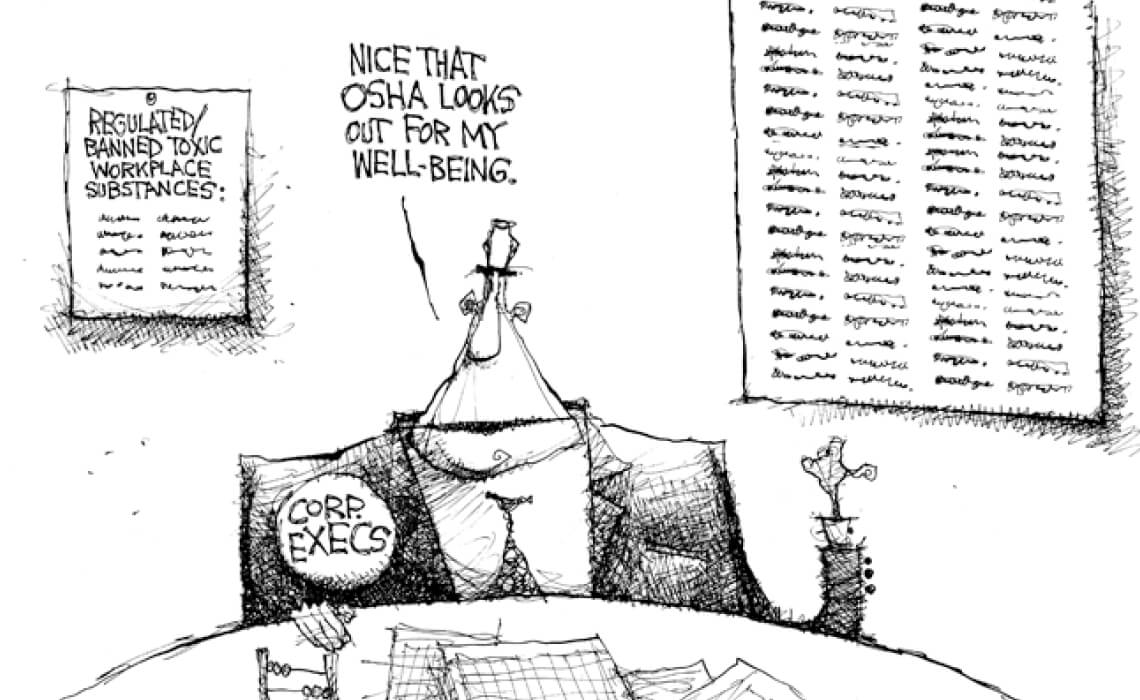Original reporting

Raising young deficit hawks
Peter G. Peterson's concerns about budget deficits now lie at the heart of a “fiscal responsibility” high school curriculum being developed by Teachers College thanks to Peterson Foundation funding.
Could US-Korea trade agreement deter enhanced regulation of financial services?
Question thus far unprobed given focus on jobs impact.
Off the clock
Republican Study Committee proposal to prohibit government employees from fulfilling union responsibilities while on government time threatens body blow to to the ability of federal unions to represent more than a million workers.
Job-killing regulations? Opponents fail to support claims with evidence
Is there actually proof that regulation and job creation are invariably in tension?
GOP study group: slash catalyst research for industry innovation
Last week’s proposal from a group of Republicans in the House of Representatives to slash federal spending by more than $2 trillion over 10 years includes a proposal that could strip away federal funds for research on an array of energy-related projects, and potentially make it harder for new technologies to reach the marketplace.
For those working: why so much?
We asked a range of conservatives what could be done to enable more two-parent families to maintain a middle class existence with greater work-life balance. Here's what they had to say.
Digging a deep hole: rare earths debacle puts U.S. trade policy under scrutiny
China's cornering of production of key minerals aided by U.S."free trade" posture.
Ball and chain: the human cost of raising the retirement age
How will people experience not being able to retire during what, for many, are their "most golden" years?
New effort to limit federal authority would make all federal laws and regulations subject to repeal by two-thirds of states
States representing as little as 27 percent of U.S. population could trump Congress, President, and Supreme Court under proposed constitutional amendment.
Poorly maintained gas pipelines put increasing numbers at risk
Roughly 300,000 miles of large-diameter pipeline make up the long distance gas transport system.
The insiders-only world of the Federal Reserve
Few institutions in the country today are less loved than the Federal Reserve. At a time when disillusionment with Washington and Wall Street is rife, the Fed — which is quite literally a hybrid of the government and the banking sector — has come under widespread attack. And while there are important differences between the critiques offered by the right and the left, there are common threads, too. Vermont Senator Bernie Sanders, blasting the “veil of secrecy” surrounding the Fed’s emergency lending program at the height of the financial crisis, struck a tone sounded by many Fed critics: the institution is unaccountable, opaque, and unduly responsive to entrenched interests.
To the extent that there’s merit to this complaint, why might it be so? What elements of the Fed’s formal and informal institutional design contribute to this situation?
To the extent that there’s merit to this complaint, why might it be so? What elements of the Fed’s formal and informal institutional design contribute to this situation?